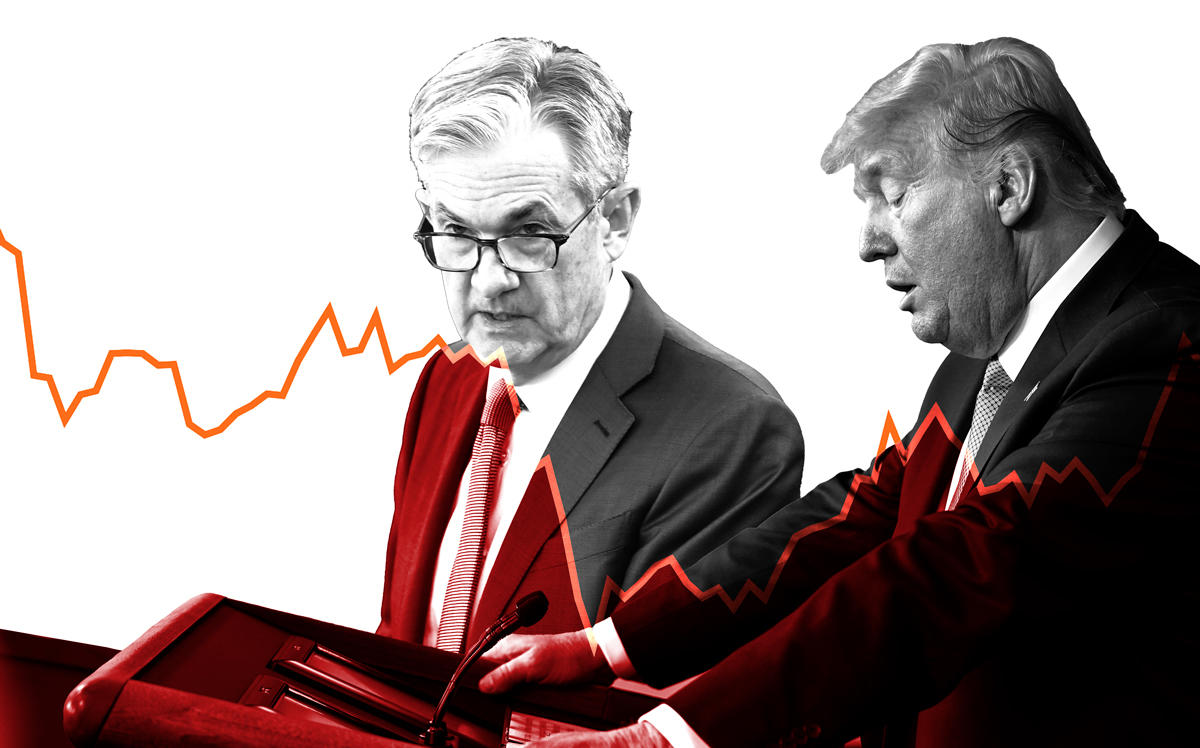The Trump administration’s effort to work with Congress on an $850 billion stimulus package to bolster the economy may be getting a positive response from investors, but it may not be enough to ultimately calm markets and those same investors.
As the U.S. fights to contain the coronavirus epidemic, the Federal Reserve on Tuesday resurrected a program from the financial crisis aimed at helping the flow of credit to businesses and households. That came two days after it cut interest rates to near zero.
“Despite these measures, we firmly believe we are going to have a recession,” said Todd Kellenberger, REIT client portfolio manager at Principal Global Investors. “It’s really just a matter of the duration of it and that’s going to be somewhat less of what the fiscal and monetary response is going to be. It’s going to be more about the pace and breadth of the actual pandemic.”
Real estate investment trusts, in some ways, are at the intersection of concerns about the spread of the virus from a health care and financial perspective, particularly as governments urge people to stay home and practice social distancing, Kellenberger said.
But the concerns have also spread to sectors that had been considered safe from short-term economic stress. Net lease REITs, for instance, have built-in streams of incomes from their long-term leases with tenants like Walmart — even if foot traffic drops off.
The stock market indices closed higher Tuesday. The Dow Jones Industrial Average, for instance, was up over 1,000 points, after plunging nearly 3,000 points the day before. The S&P 500 gained nearly 5 percent, and the Nasdaq was up about 5.6 percent.
The FTSE Nareit All Reits index was in line with the broader market, up 5.6 percent. But several major brokerages — Realogy, Newmark Group, CBRE and Cushman & Wakefield, all continued to see losses Tuesday.
In a press conference Tuesday afternoon, President Trump said he would back industries like airlines, restaurants and hotels, along with providing checks to Americans. He said he had faith the U.S. economy would bounce back once the coronavirus pandemic slows.
“When the victory takes place, our economy will go through the roof. It is so pent up, it is so built up, it is so ready to go in an upward direction,” he said. “But we have to knock out this enemy. This is a really tough enemy.”
Meanwhile, Treasury Secretary Steven Mnuchin confirmed there were no plans to close the stock markets, which have been on a roller-coaster ride since the coronavirus began to spread around the U.S. several weeks ago.
“Americans need to know they have access to their money,” he said.
Meanwhile, the Federal Reserve, two days after implementing its second interest rate cut this month, re-instituted a commercial paper funding facility, backed by the U.S. Treasury, to bolster the flow of credit.
The market has been looking for something impactful, said Kellenberger, and the moves announced Tuesday were a step in that direction. But Kellenberger noted that volatility in the markets will persist.
“Fiscal stimulus and monetary policy can help these markets but it can’t ultimately stop the virus or the spread,” he said. “Until we have more testing and a further ramp of a medical response, I think there’s going to continue to be a lot of uncertainty.”
Kevin Brown, an equity analyst at Morningstar, agreed, noting that the measures announced Tuesday did not solve major issues the virus is creating, such as forced closures of schools, workplaces and stores.
“I don’t think that this is going to be sufficient to completely save the economy in the short term,” he said. “There will be fallout from the coronavirus that is just completely unavoidable.”
“It’s just fear and everything’s turning red,” Brown said.
Another sector in a similar scenario is seniors housing, already struggling from issues of oversupply, which has been hurting from concerns over the vulnerability of its population to COVID-19.
Seniors housing REIT Ventas said Tuesday it was withdrawing its full-year fiscal guidance and increased its revolving credit facility to $2.9 billion from $145 million. The company said that would help Ventas “increase liquidity and preserve financial flexibility” in light of the pandemic.
“In a world of social distancing, real estate is suffering as most real estate is utilized to bring people together,” Kellenberger said.
Write to Mary Diduch at md@therealdeal.com
